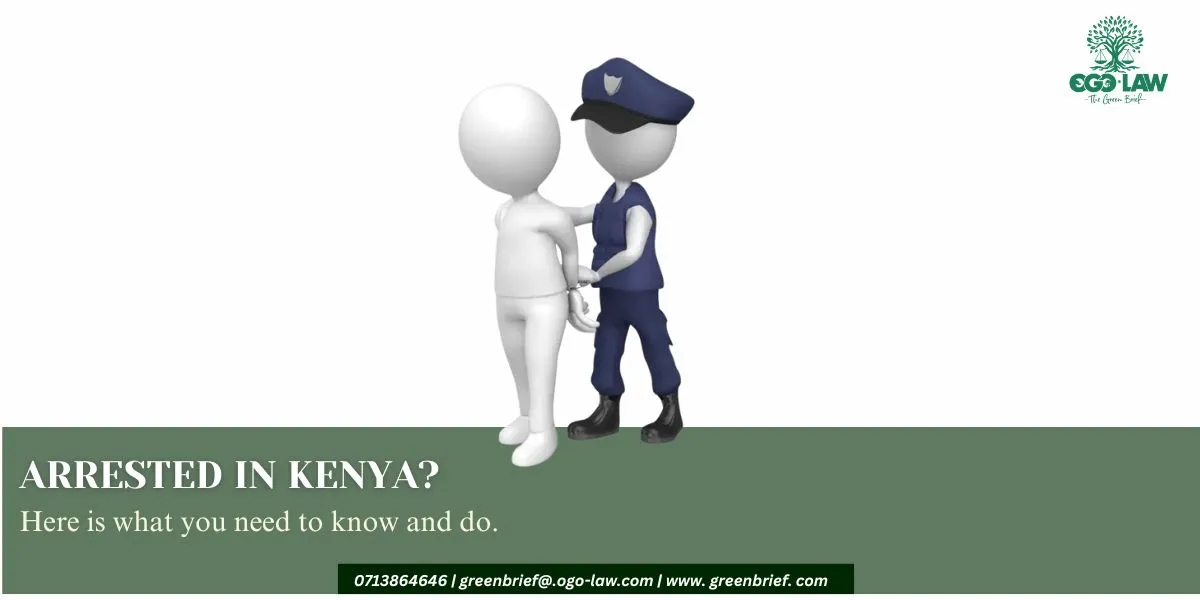Here’s What You Need to Know (And Do)
Behind each viral image of a protester being dragged into a police van is a story of fear, of confusion, and of rights often trampled in the heat of the moment. If you or someone you know is arrested in Kenya, knowing your rights and the right steps to take could mean the difference between justice and violation.
In recent weeks, Kenya has witnessed a wave of public unrest. From peaceful protests to mass demonstrations, the voices of many have echoed through our streets, calling for accountability, justice, and change. But with this rise in civic action has come an alarming increase in arrests some lawful, others disturbingly unlawful.
This is your guide.
1. Stay Calm, Stay Quiet
The moment of arrest is often chaotic. You may be afraid or even angry, but it’s critical to stay calm. Do not resist arrest, even if you believe it is unlawful , resisting could lead to extra charges like assault or obstruction. You have a right to remain silent. Anything you say can and will be used against you. Do not be pressured into making statements or signing any documents without legal representation.
2. Identify the Officer (If You Can)
If possible, note the name, badge number, or police station of the arresting officer. In Kenya, police are required to identify themselves when making an arrest including showing their official badge or ID. This information will be useful later, especially if your arrest is challenged in court or during a complaint process.
3. You Have the Right to Know Why You’re Being Arrested
Under Article 49 of the Kenyan Constitution, you have a right:
- To be informed promptly, in a language you understand, of the reason for your arrest.
- To be informed of the charges against you.
- To be treated humanely and with dignity, regardless of the crime you’re accused of.
If you’re not told why you’re being arrested, ask clearly and respectfully.
4. Demand Legal Representation
Every arrested person in Kenya has the right to a lawyer. You can:
- Contact your own lawyer.
- Or ask to be assigned legal aid if you cannot afford one.
Police must give you a reasonable opportunity to consult with your lawyer in private and before any questioning. Do not allow yourself to be interrogated without one.
5. You Must Be Taken to Court Within 24 Hours
By law, you cannot be held by the police for more than 24 hours without being taken to court unless it’s a weekend or public holiday, in which case the period extends to 48 hours.
If this right is violated, it’s grounds for legal action.
6. Document, Document, Document
If you’re released, write down everything you can remember; the timeline of your arrest, names of officers, what was said or done, and whether you were mistreated. This can serve as crucial evidence if your rights were violated. Also, consider visiting a doctor to document any physical harm you may have suffered during the arrest or detention.
7. Report Unlawful Conduct
If the arrest was unlawful , for example, if you were beaten, denied a lawyer, held longer than allowed, or arrested without cause , you can report the matter to:
- Independent Policing Oversight Authority (IPOA)
- Kenya National Commission on Human Rights (KNCHR)
- Or pursue redress through a constitutional petition in court.
You Deserve Dignity
Being arrested can be one of the most traumatic experiences of your life. But you are not powerless. Kenya’s Constitution protects you even in handcuffs. Know your rights. Speak to a lawyer. Tell your story. And if someone you know has been taken away, don’t stay silent. The law may falter, but collective vigilance is its greatest strength.





